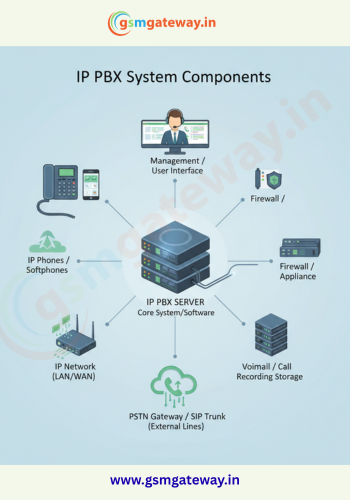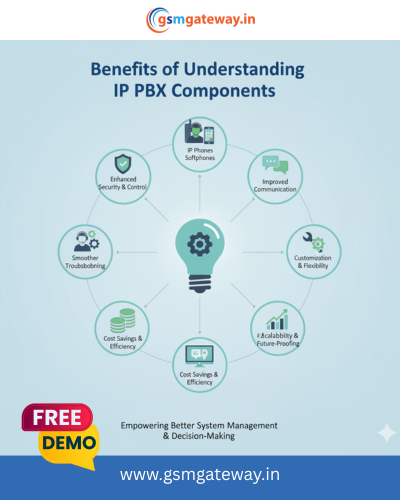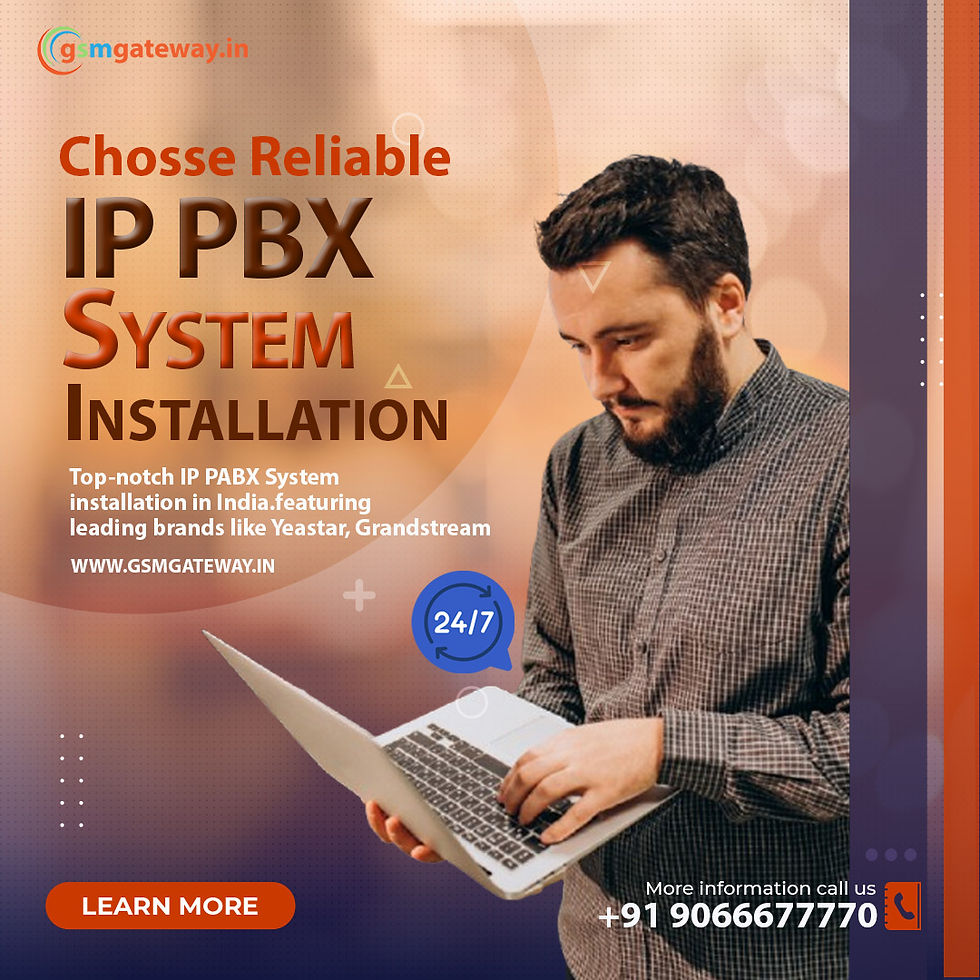What are the components of IP PBX?
- gsmgateway972
- Sep 12, 2025
- 3 min read
Updated: Sep 16, 2025
Understanding the Key Components of an IP PBX System

In the business world today, smooth communication is the key to success. Businesses of all sizes are switching from regular phone systems to IP PBX Systems to save money, work more efficiently, and give better customer service. But what is it that makes an IP PBX system work? Let's look at the main parts of an IP PBX and how they work together to keep your business connected.
What is an IP PBX System?
An IP PBX system (Internet Protocol Private Branch Exchange) is a phone system that uses the internet instead of regular phone lines to handle both internal and external calls. IP PBX uses packet-switched VoIP (Voice over Internet Protocol) technology to route calls, which is different from older PBX Systems that use circuit-switched networks.
This change lets firms cut down on communication costs, add new features, and effectively grow their operations. The IP PBX Server is at the heart of this technology, and it is supported by hardware, software, and networking solutions.
Core Components of an IP PBX System
We need to look at the essential parts of an IP PBX to understand how it works. These parts work together to make corporate communication safe, reliable, and full of features.
1. IP PBX Server – The Heart of the System
The IP PBX server is the central brain of the telephony setup. It manages call routing, extensions, voicemail, conferencing, and security.
Functions of an IP PBX Server:
Routes incoming and outgoing calls.
Connects internal users (employees).
Provides call features such as transfer, hold, recording, and IVR (Interactive Voice Response).
Ensures communication security with encryption and firewalls.
No other parts can work right without the IP PBX server. It can be set up on-site, in a data center, or in the cloud, depending on what the business needs.
2. IP Phones and Softphones
To make and receive calls, users need devices that connect to the IP PBX system.
IP Phones – Desk phones designed for VoIP communication. They connect via Ethernet or Wi-Fi.
Softphones – Software-based phones that run on desktops, laptops, or mobile devices.
Both methods let employees talk to each other from the office or from home, which saves money and gives them more freedom.
3. IP PBX Software
The system runs on IP PBX software, which also lets you use additional capabilities. Asterisk, FreePBX, and 3CX are all open-source systems that many businesses use.
Features of IP PBX Software:
Automated attendants (IVR)
Call recording and monitoring
Unified communications (chat, video, voice)
Reporting and analytics
Integration with CRM and productivity apps
4. Gateways and SIP Trunks
An IP PBX often needs to connect with external networks. This is where gateways and SIP trunks come in.
VoIP Gateways – Convert analog phone lines (PSTN) to digital VoIP signals. Useful for businesses transitioning from legacy telephony.
SIP Trunks – Virtual phone lines delivered over the internet. They eliminate the need for physical phone lines and make scaling easier.

Benefits of Understanding IP PBX Components
Knowing the components of an IP PBX system helps businesses:
Make better investment decisions when choosing an IP PBX server or IP PBX software.
Scale operations easily by adding extensions or upgrading SIP trunks.
Improve call quality by strengthening network infrastructure.
Enhance customer experience with IVR, voicemail, and advanced call handling.
Conclusion:
An IP PBX system is more than just a way to make calls; it's the basis of how businesses communicate today. You can make a solution for your business that is scalable, cost-effective, and future-proof by learning about its main parts, like the IP PBX server, IP phones, IP PBX software, gateways, and networking infrastructure.

Frequently Asked Questions (FAQ)
Q1. What is the difference between PBX and IP PBX?
A traditional PBX uses analog phone lines, while an IP PBX system routes calls over the internet using VoIP technology. IP PBX offers more features, scalability, and cost savings compared to traditional PBX.
Q2. Can I use an IP PBX without internet?
Yes, you can use it for internal calls over a local network, but internet connectivity is required for external VoIP calls.
Q3. Which is better: hosted IP PBX or on-premise?
Hosted IP PBX is cloud-based, requiring less maintenance and upfront cost. On-premise IP PBX gives businesses full control and customization. The choice depends on budget, control, and scalability needs.







Comments